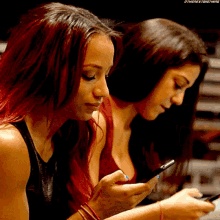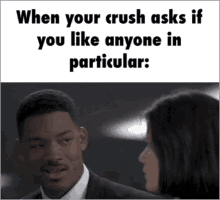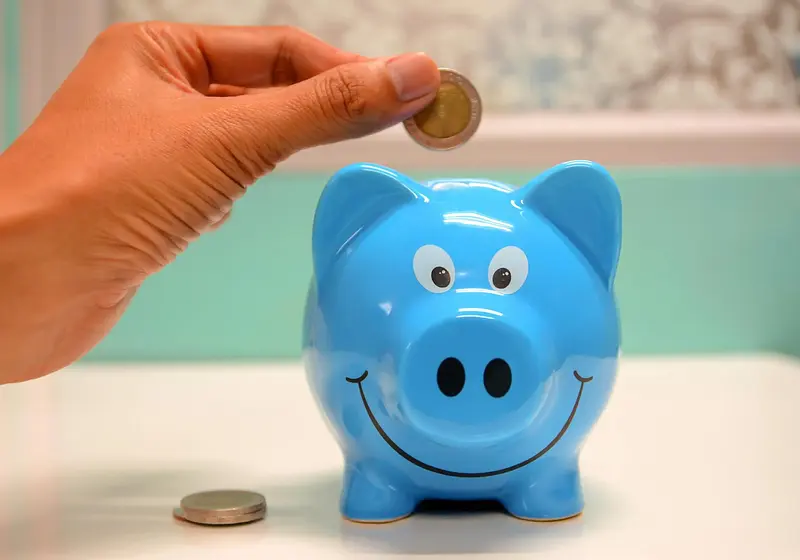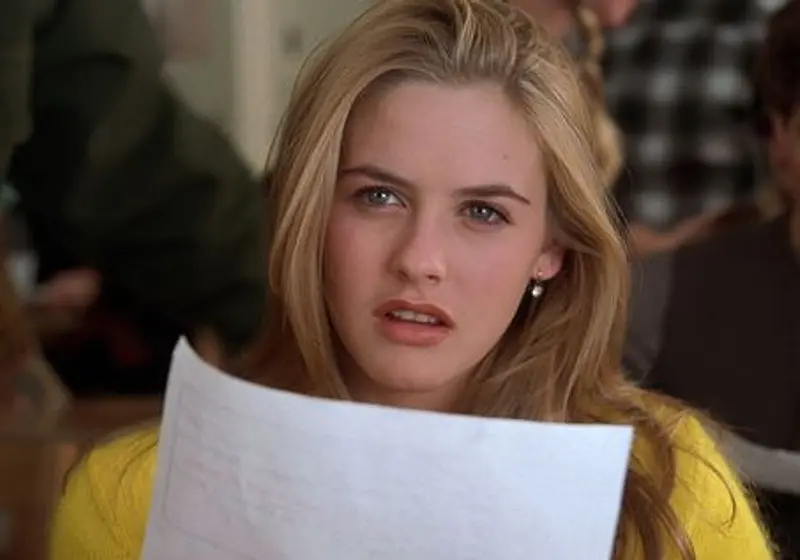If you jump, I jump.
Was it really the beloved cult classic Titanic that perpetuated the infamous parent line: “If Jimmy jumps out of a window, would you jump too?”
But muuuuuum, Kate Winslet told me it was THE romantic thing to do.
Let's start at the beginning before we blame Rose for not only leaving Jack to freeze in the ocean but for feeding our parents some dangerous ideas — how peer pressure is defined, what pertains to it, what sustains it, and how to identify it.

Credit: Valentova from CSFD, https://www.csfd.cz/uzivatel/176934-adush93/denicek/
Peer pressure by definition can either be an indirect desire of one to give in to a social standard of doing things to feel embraced and accepted, or a direct influence of a certain group of individuals on one to want to change beliefs and behavior to conform to theirs.
These two often go hand in hand, and the lines of whether to start pointing fingers at yourself for being too impressionable or at society for being too status quo are blurred at best.
Obviously, this is a highly subjective topic, but for the purposes of this self-help playbook, let's diverge from the blame game and instead, find the golden elusive balance that is essential for A: co-existing in society and B: living with yourself without compromising what you believe.
Let's go try and disperse the non-logic behind peer pressure as best we can.
A Sheep in Sheep's Clothing
The basic psychology behind peer pressure and your desire to copycat others, to conform, fortunately, does not contain any riddles to be solved, nor layers to be uncovered.
Have you ever noticed how when someone yawns you get a terrible itch to start yawning, too? Or when you're sharing a cup of coffee with friends, you involuntarily start mimicking their mannerisms — if they tuck a loose strand of hair behind their ear, you do the same thing almost immediately.
The point is, you do it unconsciously. It's a very normal, natural human trait — we have been gathering in groups long before we started speaking any languages — to hunt, to keep warm, to keep safe from outward dangerous influences.
Humans are social beings, and we suffer in isolation — hence so many more mental health issues have emerged since the pandemic started. So the first step is to remove the proverbial guilt about wanting to conform.

Credit: Cat Planet from KnowYourMeme, https://knowyourmeme.com/memes/cat-planet
Nothing Revolutionary Ever Comes From Conventionality
To break away from the habit of saying yes to every suggestion, even though it may be detrimental to you, it might be a good idea to scavenge the Earth for people who don't let social etiquette dictate their lives.
And while Shakespeare's Iambic Pentameter or Michael Jackson's Moonwalk revolutionized the world, a guy who's been dead for five hundred years will hardly help in day-to-day life. BUT — you may find hidden gems in a pile of glass.
I come from a town where gossip's the word of God and everyone watches X-Factor no matter how garbage of a show it is, simply because it is a popular thing to do.
Even in a town like that, I was able to find a couple of free-thinking humans.
We gathered and drew strength from each other's uniqueness. Take a look around your neighborhood, your family circles, and your school district, and you'll soon realize there are more unconventional thinkers than you would have thought.
If you prefer online circles, such as Reddit or Twitter, that could help, too, although social media are its own ninth circle of [censored] when it comes to peer pressure. But if you can navigate the internet skillfully and find positively-tuned folks, it's good for you.
And when your conviction is enforced — since there is power in numbers — you might just invent the Perpetuum Mobile of sustainable energy, or write an Oscar-winning script one day.

Image Credit: StagePresents UK from Etsy: https://www.etsy.com/listing/1044153698/spontaneous-musical-numbers-theatre-sign
Suspension of Disbelief
The complicated explanation is that suspension of disbelief is the intentional avoidance of critical thinking and logic in examining something surreal, such as a work of fiction, to believe it for the sake of enjoyment.
In other words, it's that thing that makes you automatically shut your brain off when watching musicals without questioning why people sing two-hour dirges at each other in an unusually dramatic manner instead of, just, you know, talk.
When suspension of disbelief is done right, especially in movie musicals, (I'm looking at you, Chicago) the emotional payoff is cathartic.
When it's done poorly, (I'm looking at you, Cats, you crime against humanity) the result is horrifyingly bad.
And while suspension of disbelief is a philosophy used mainly in theater and film to suspend judgment concerning the improbability of a tale, it's a handy thing to be aware of when analyzing peer pressure. The technicalities function similarly.
The better it feels, the less thought you're giving to what you're doing.
Peer pressure uses a suspension of disbelief to make you detach from logic and critical thinking to enjoy the ride. It feels good to do what others are doing, so you never start questioning it. The feel-good bubble is laid on too thickly.
But while Realism in movie musicals hurts art (I'm looking at you, Les Misérables) and Stylism elevates it, (I'm looking at you, Moulin Rouge) in real life, it's the other way around.
If you're in the middle of a drinking session with your buddies feeling too good for your own good, ask yourself whether you're there to let off steam, or because it's what we're supposed to do on campus during a weekend.
Speaking of musicals...

Image Credit: Moawling from Itcho, https://moawling.itch.io/is-it-that-deep-bro
The Hamilton Phenomenon
I suppose I could use La La Land as an example, too, but Hamilton is fresher in everyone's memory. And while La La Land was a trend that came and went away, Hamilton is a (money-snatching) gift that just keeps on giving. So, what do these two have in common, and how does it relate to peer pressure?
I remember back in 2016 it used to be a crime to say a word against La La Land. Any criticism directed towards it was scorched in its crib.
It's no surprise that Hollywood was smitten with La La Land and gave it fourteen Oscar nominations. It's an ode to their industry.
And I enjoyed La La Land. I've seen it many times. But that doesn't stop me from expressing that it drags in the middle, and I still don't get the Best Costume Design nomination.
But generally, journalists and the online communities deferred from any criticism whether it is constructive or not, because it was not a popular thing to have an unfavorable opinion about. So no one did.
Hamilton is (un)fortunately more consequential. There are a couple of issues to dive into because of the immediacy with which it penetrated the mainstream media.
How and why exactly did it manage to do that? Because white people liked it, and invested time and money on it.
Hamilton is a love letter to America. And don't get me wrong, I think it's brilliant, but it's not here to crush any current societal beliefs.
If anything, it confirms that the American experiment works, that you can be a [censored]-poor nobody islander and start a republic on the Northern American continent if you put your mind to it.
And well, if you happen to die like an idiot, that's because you make idiotic decisions, not because America did not give you a chance. (She said sarcastically. Kind of.)
It's fine to experiment with a line of thought regarding a widespread downright cultist obsession that is a huge part of the Hamilton debate, instead of declaring there’s nothing wrong with it.
However, there is a line that might have been crossed, where the desire to accommodate howling masses became so loud, we started overthinking it to an excessive degree.
To put it into perspective, Hamilton resurfaced last summer in the form of a pro-shot performance on Disney+ during a highly strained Black Lives Matter Movement.
And because the cast is largely African-American, all the media in the solar system keeps dragging the perfectly lovely (and clearly uncomfortable) original Broadway cast to interviews, in a woke attempt to connect a play about the whitest of white people ever put to a white paper brought to you by the white ruling class, with a black social movement.
Hamilton's creator and star Lin-Manuel Miranda stated multiple times throughout the years that he wanted a career in musical theater and simply did not see one for himself because — shocker — *racism*.
Is it possible that a Puerto Rican kid just wanted to be on Broadway and, in an attempt to write something meaningful, wanted to help people in a similar predicament, too?
I don't think it's too controversial to state that black and brown people are incredibly musically gifted, and there are some insane rap sequences in the play. So, unless the government can clone Eminem to handle all that, I don't see the show going very well without black and brown talent in it.
Is it possible that it can be that simple, or does everything have to be woke?
Apparently, it does. And so you get clips of these poor actors looking like they're being held hostage on camera, developing Stockholm Syndrome in real-time, skating around the issue gracefully to accommodate a narrative peer pressure being pushed to the forefront of their careers... Instead of, you know, their work on the project or their dedication to it being the focus.
The backbone of Hamilton is not racism. It's simply not a story about that. In fact, it would break it completely if it were included heavily in the narrative. So why, God, why do we keep inserting the social justice movement into a hip-hop musical that is not built for that or on that?
Because of peer pressure, that's why. And while a conversation about popularized mainstream art might seem like a fairly innocent discussion, it only paints a picture of a larger issue — a strenuous online (and often offline) environment that has been created in our society.
There is no room to enjoy something for what it is anymore. Unless we decide otherwise. Unless we decide to think for ourselves. There has never been a more important time to sift through opinions and identify which ones are toxic and which ones serve us in the long run.
POV: What is best for You
Yeah, I'm hitting you with the good ole´ “I don't think you should do it, but it's up to you”. Because ultimately, it is.
Before the digital era, people used to trust their intuition instead of trusting Instagram influencers to decide for them. Inner guidance can be a decent GPS if you let it.
Those moments when you just know you shouldn't do something, that voice in your head that says “Go” or “Halt”? That voice is often spot on.
It is my great wish as a writer, to deliver inspiring messages, an even greater one, for my beautiful readers to, if nothing else, stop and think for themselves without considering external influences first.
Speaking from experience, the craving to please others never truly goes away. But the good news is, neither does the desire to maintain a certain degree of integrity to balance it out.
(Oh, and while we're here, breaking the barriers of peer pressure, let me just say that Bridgerton sucks pretty hard.)















.jpeg)





